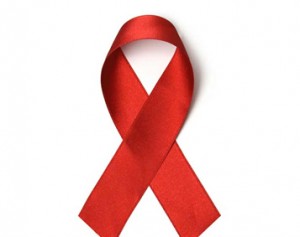Help reduce HIV infection – GAC
 The Ghana AIDS Commission (GAC) has launched this year’s World AIDs Day with a call on the public to work towards reducing the infection rate in the country.
The Ghana AIDS Commission (GAC) has launched this year’s World AIDs Day with a call on the public to work towards reducing the infection rate in the country.
It said in 2019, the Commission registered 342,307 people living with HIV of which 20,068 were new infections out of which 2, 104 were adolescents and 13,616 were AIDS related deaths.
Dr Kyeremeh Atuahene, the Director-General of GAC, who made the call noted that the growing disregard for HIV and AIDS preventive measures accounted for the rise in infections, urging that “all Ghanaians should help reduce new HIV infections by each one of us taking responsibility for self-protection at all times.”
“We should also support Persons Living with HIV (PLHIV) to take their anti-retroviral drugs religiously to attain viral suppression and reduce AIDS related deaths in the country,” he advised.
This year’s World AIDS Day is slated for December 1, 2020, and will be commemorated on the global theme; “Global Solidarity, Shared Responsibility.”
In Ghana, the day is being marked on the sub-theme; “Stay Safe; Let’s End AIDS by 2030”, to stimulate national and collective efforts at reducing HIV and AIDS prevalence in the country.
Dr. Atuahene said although Ghana had missed out on the UNAIDs 90, 90, 90 target, which envisaged that by end of 2020, 90 per cent of all PLHIVs globally would have known their status, 90 per cent of persons diagnosed with HIV placed on antiretroviral drugs and 90 per cent attaining viral suppression, a new target to end the epidemic by 2030, was feasible.
He said Ghana was set to implement a new national HIV and AIDS strategic plan (2021 to 2025) in line with a global 2030 target to end AIDS.
Mr Atuahene noted that under the new strategy, the Commission would roll out HIV self-testing to encourage more people to test for the virus at any given time and seek immediate medical attention should the tests prove positive.
He said the Commission was also working with its partners to implement provisions under the GAC Act to sanction persons who stigmatise and discriminate against persons living with HIV and other vulnerable populations.
“The success of this strategy and others depend on every individual Ghanaian. We all have to show an accepting attitude towards PLHIV and their families,” he urged.
Dr Mokowa Blay Adu-Gyamfi, The Presidential Advisor on HIV, who launched the celebration, expressed the government’s commitment to “deal with all epidemics that posed significant public health challenges to Ghanaians.”
She urged “All to join hands with the government in bringing into reality quality, accessible and affordable healthcare under the universal healthcare for all Ghanaians and also end AIDS by 2030.”
Dr Patrick Kuma-Aboagye, the Director-General of the Ghana Health Service (GHS), admonished Ghanaians against being complacent with HIV and AIDS preventive measures as the country grappled with containing the COVID-19 pandemic.
“Staying safe from HIV infections means adopting a comprehensive combination of prevention and promotion strategies, including use of condoms, accessing testing and treatment services and observing all COVID-19 protocols strictly to prevent complications especially among PLHIVs,” he urged.
Ms Elsie Ayeh, President of the Network of Association of Persons Living with HIV (NAP+), appealed to Government to allocate more resources to the fight against HIV and AIDS.
Activities lined up for the month-long celebration include HIV testing, media, and public sensitisation as well as engagement with religious bodies to drum home the gravity of HIV and AIDS prevalence and the need for all to stand together against stigmatisation.
Source: GNA
